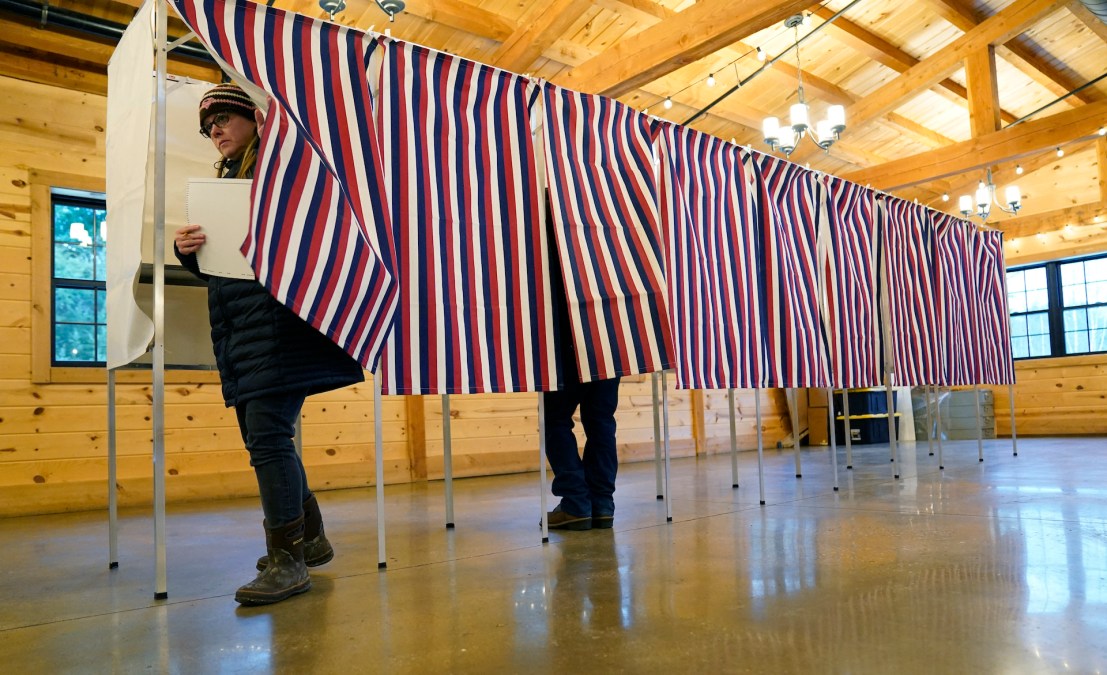House Republicans propose eliminating funding for election security

A key House panel has zeroed out funding for federal grants that would send tens of millions of dollars to state and local governments to improve the security of their election infrastructure, while slashing funds for the federal agency charged with disbursing them.
This week, Republican leaders on the House Appropriations Committee released an appropriations bill that would reject a $96 million request from the Biden administration for grant funding through the Help America Vote Act, which has funneled billions in federal dollars to states and localities since 2002 to replace voting machines, train workers, harden the security of election systems and meet other election administration needs.
Additionally, the bill would provide just $20 million in funding for the Election Assistance Commission, the federal agency responsible for managing the grants and testing and certifying voting machine standards. That figure is $114 million less than requested levels for fiscal year 2025 and $7.7 million less than what it received in 2024.
On Wednesday, lawmakers advanced the measure in a party-line vote of the Financial Services and General Government Subcommittee of the full House Appropriations Committee.
In statements ahead of that vote, committee Chair Tom Cole, R-Okla., and subcommittee Chair David Joyce, R-Ohio, did not address the funding slash for EAC.
Members of the committee did not immediately return requests for comment.
The proposed cuts are part of a larger paring of federal spending in appropriations proposals pushed by House Republicans this week, including more than $2 billion in cuts to the Internal Revenue Service for tax enforcement, numerous policy riders on abortion and blocking climate disclosure regulations from the Securities and Exchange Commission.
During a markup of the Financial Services and General Government appropriations bill, ranking subcommittee member Steny Hoyer, D-Md., said the appropriations process was not done in a bipartisan manner and expressed his belief that “this bill is going nowhere” in its current form, as Democrats intend to block it with their control of the Senate and White House.
Hoyer, one of the original authors of the 2002 Help America Vote Act that created the grant program, also expressed incredulity that House Republicans were seeking cuts to federal funding for election security during a time when they have also largely backed former President Donald Trump’s attacks “about the efficacy and honesty of elections.”
“I’m sorry that’s been cut. I’ll be working on that,” Hoyer said.
Those sentiments were echoed by advocacy organizations that say election administrators in the United States remain badly under-resourced. The White House has repeatedly requested billions of dollars for election security grants to states, but last year just $75 million was allocated to the program.
Tiana Epps-Johnson, the executive director for the Center for Tech and Civic Life, said the cuts are happening “at a time when a record number of election officials have asked Congress to do better on funding and improve the resilience of our elections.”
“Congress cannot credibly claim to care about election security while continuing to cut federal election security grants,” Epps-Johnson said.
Despite the proposed cuts, an official at the EAC told CyberScoop that agency officials aren’t panicking, given that the measure is almost certain to be blocked by congressional Democrats.
“That number is not realistic to the demands of the space or the needs of the agency, but I also think we’re a long way from that being part of a likely appropriation outcome,” said the official, who spoke on condition of anonymity.
The EAC’s budget and staff have more than doubled over the past four years, and the official said the agency did have some breathing room as funding levels for 2023 were higher “in anticipation of a little bit of stagnation.” But they also acknowledged that the levels proposed by House Republicans this year “would be a significant backslide.”
“Seeing the demands in the space around cybersecurity, physical challenges, AI challenges that are increasing in the future, the demands in the election space are so many,” the official said. “Why this would be the place to try to save a few dollars in the federal budget, I don’t know.”



